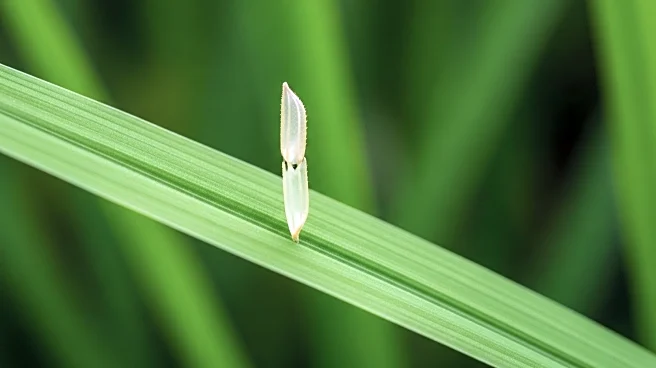What is the story about?
What's Happening?
Researchers from the University of Massachusetts Amherst and Jiangnan University have discovered that nanoscale applications of selenium can significantly reduce the environmental impact of rice cultivation. This method decreases the need for fertilizers while maintaining yields, enhancing soil microbial diversity, and cutting greenhouse gas emissions. The study demonstrates that selenium applications can improve nitrogen use efficiency and boost the nutritional value of rice, offering a sustainable solution to feed billions.
Why It's Important?
This breakthrough addresses the environmental and economic challenges associated with rice cultivation, a staple for over 3.5 billion people. By reducing fertilizer use and emissions, the research supports sustainable agricultural practices that can mitigate climate change impacts. The findings have the potential to revolutionize rice farming, promoting food security and environmental conservation globally.















